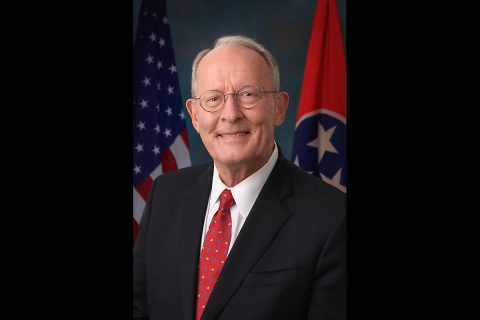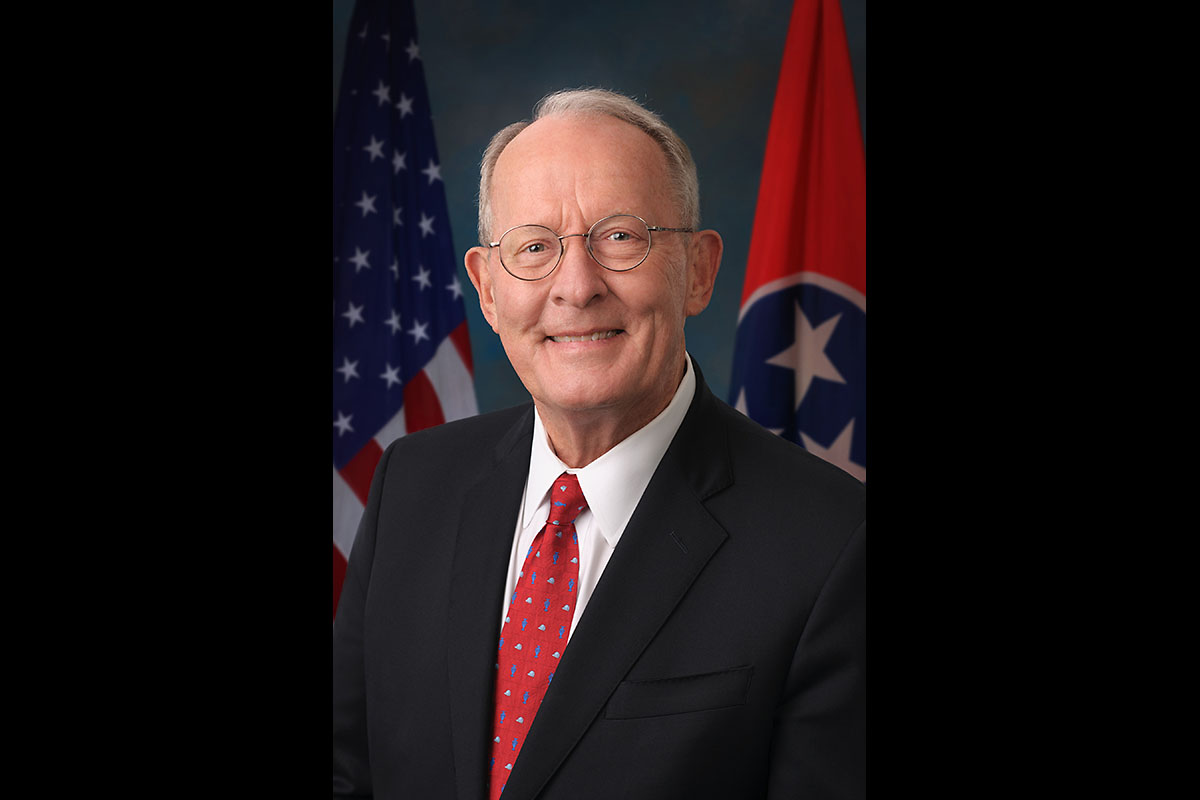 Washington, D.C. – U.S. Senator Lamar Alexander (R-Tenn.) today emphasized to U.S. Department of Energy Secretary Dan Brouillette the importance of continuing to prioritize funding for American research and technology development.
Washington, D.C. – U.S. Senator Lamar Alexander (R-Tenn.) today emphasized to U.S. Department of Energy Secretary Dan Brouillette the importance of continuing to prioritize funding for American research and technology development.
“Last March, I proposed a ‘New Manhattan Project for Clean Energy,’ a five year project with Ten Grand Challenges that will use American research and technology to put our country and the world firmly on a path toward cleaner, cheaper energy,” Senator Alexander, who serves as chairman of the Senate Energy and Water Development Appropriations Subcommittee, said.

“Meeting these Grand Challenges would create breakthroughs in advanced nuclear reactors, natural gas, carbon capture, better batteries, greener buildings, electric vehicles, cheaper solar and fusion,” stated Senator Alexander.
“To provide the tools to create these breakthroughs, the federal government should double its funding for energy research and keep the United States number one in the world in advanced computing. This strategy takes advantage of the United States’ secret weapon, our extraordinary capacity for basic research, especially at our 17 national laboratories, including Oak Ridge National Laboratory. It will strengthen our economy and raise our family incomes,” said Senator Alexander.
Senator Alexander continued, “One of the best-kept secrets in Washington is the strong bipartisan support from Congress and recent administrations for American research and technology development. For each of the past five years, Senator Feinstein and I have been able to work in a bipartisan way to get our bill signed into law.”
“Last year we provided $7 billion for the department’s Office of Science, the fifth consecutive year of record level funding, which supports basic science and energy research at our 17 national laboratories and is the nation’s largest supporter of research in the physical sciences. We also provided $425 million for ARPA-E to continue the important research and development investments into high-impact energy technologies – another record funding level in a regular appropriations bill and a program we have worked hard to increase funding for by 52 percent over the last five years,” Senator Alexander commented.
“We also provided $1.49 billion for the department’s Office of Nuclear Energy, which is responsible for research and development of advanced reactors and small modular reactors, and $16.7 billion for the National Nuclear Security Administration, including record funding levels for our Weapons Program and Naval Reactors,” said Senator Alexander.
“Governing is about setting priorities, and we always have to make some hard decisions to ensure the highest priorities are funded.”
Alexander discussed prioritizing federal support for science and energy research; maintaining a safe and effective nuclear weapons stockpile; demonstrating that we can build safe, affordable advanced reactors; the need to keep America first in supercomputing; and solving the nuclear waste stalemate.
On supercomputing: “The U.S. has maintained the number one spot during the past two years, thanks to sustained funding for supercomputing, which over the last five years has increased by 59.8 percent. …I’m pleased that this budget request proposes to continue development of exascale supercomputers – the next generation of supercomputers – that will develop a system a thousand times faster than the first supercomputer the U.S. build in 2008.”
On solving the nuclear waste stalemate: “To ensure that nuclear power has a strong future in this country, we must solve the decades’ long stalemate over what to do with used fuel from our nuclear reactors. To solve the stalemate, we need to find places to build geologic repositories and temporary storage facilities so the federal government can finally meet its legal obligation to dispose of nuclear waste safely and permanently.”
“I strongly believe that Yucca Mountain can and should be part of the solution to the nuclear waste stalemate. But even if we had Yucca Mountain open today, we would still need to look for another permanent repository. We have more than enough used fuel to fill Yucca Mountain to its legal capacity. … But the quickest, and probably the least expensive, way for the federal government to start to meet its used nuclear fuel obligations is for the Department of Energy to contract with a private storage facility for used nuclear fuel.”
Alexander is chairman of the Senate Appropriations Subcommittee on Energy and Water Development, which oversees the U.S. Department of Energy—a federal agency with three critical missions: nuclear security, science and energy, and environmental management. Today’s hearing was the subcommittee’s first budget hearing this year. At the hearing, Alexander noted that the subcommittee has a good record of being the first of appropriations bills to be considered by the committee and by the Senate each year.
Click here for Alexander’s full prepared remarks.



